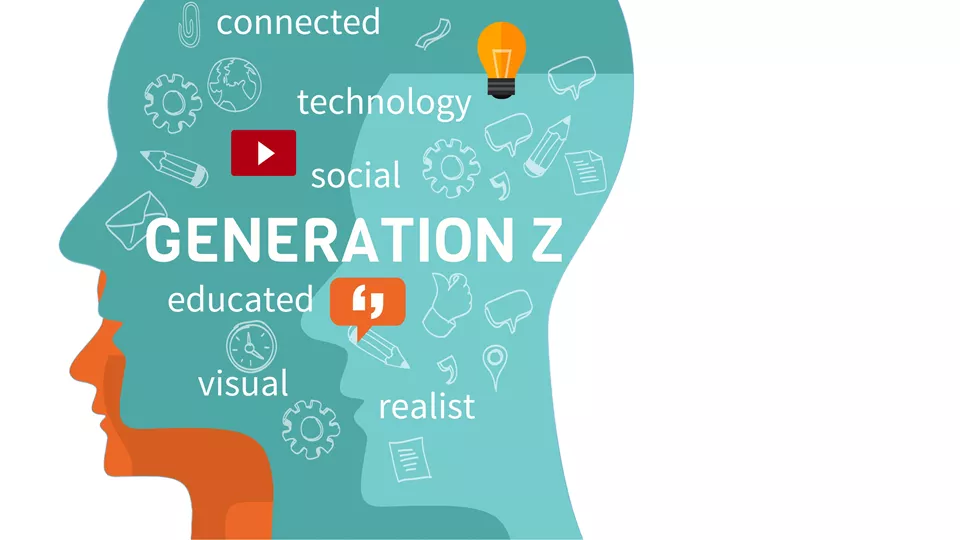Let’s talk about Gen Z webinar – key highlights
Our Let's talk about Gen Z webinar (held during Mental Health Awareness Week on 15 May 2025) brought together legal professionals from all generations to explore how generational differences are shaping the profession and what this means for the future

The panel featured:
- Morgan Pennie – soon-to-be solicitor at Pinsent Masons
- Anita Gohil-Thorp – former lawyer and coach
- Henry Nelson-Case – lawyer and workplace wellbeing advocate
- Lloyd Rees – Chair
Attendees were a mix of Gen X (50%), Millennials (34%), Gen Z (10%), and Boomers (6%), highlighting how relevant these discussions are across age groups.
Here are some of the key outcomes from the panel discussion
The reality of legal work
Legal work often contrasts sharply with its portrayal on TV. While shows may glamourise the profession, the reality is long hours, tedious research, and heavy documentation. This often leads to misconceptions for aspiring lawyers.
"In reality much of legal work involves tedious research, document review and long hours of prep. And like all those tasks are all the same, far less cinematic in the way that they are made out to be in the movies."
Work-life balance and the need for change
The conversation highlighted the need for change in the legal sector. Discussions about wellbeing have been ongoing since COVID, yet real change has been slow.
"We were talking about a lot of this stuff in COVID in 2020 and we're still talking about a lot of the same things now."
Many firms acknowledge Gen Z's expectations around work-life balance and mental health but struggle to make concrete changes. The panel emphasised that:
- Leaders need to listen to younger voices and implement change rather than just discuss it.
- Gen Z and Millennials are vocal, but decision-making often remains with Baby Boomers and Gen X.
"Young millennials or whatever can scream and shout about... I can talk about it on LinkedIn until I'm blue in the face, but ultimately I am not a decision maker at these law firms."
What a supportive workplace looks like
The panel outlined key features of a truly supportive work environment:
- Flexible working: Options for remote, hybrid, or flexible hours to reduce stress.
- Mental health support: Access to therapy, mental health days, and wellness programs.
- Regular check-Ins: Informal conversations like "walk and talk" sessions where people can express concerns.
- Respect for boundaries: A culture where after-hours emails aren’t expected.
- Open communication: Managers trained to genuinely check in on staff wellbeing.
- Workload management: Realistic expectations and enough team support to prevent burnout.
A great example shared was a senior PA who checked in on Morgan after a tough interview, simply to show she cared. It was a small gesture that made a big impact.
"I expect a profession that values procession and dedication, but also one that evolves with modern understandings of mental health and sustainable productivity."
Breaking stereotypes and building respect
The discussion touched on the need to move away from stereotypes like calling Gen Z "fluffy" or "weak."
"We've got to have better proactive role models that stop making kind of negative assumptions about this generation."
Older generations need to respect the values and perspectives younger professionals bring to the table. Role models who appreciate and understand these differences are essential for change.
Social media as a bridge
Social media, especially LinkedIn, is helping close the gap between generations in law. More people in the legal profession are sharing their experiences with mental health, which is encouraging open conversations. This kind of visibility is creating role models and highlighting diversity in the sector.
"These platforms allow people from backgrounds that may not have previously seen themselves represented in law firms, brochures, or at the partnership level to see individuals from minority backgrounds like themselves being represented."
In-house vs. private practice
The panel dispelled the myth that in-house legal work is easier than private practice. While in-house roles often lack billable hours, they come with different pressures, such as business stakeholder management. Gen Z's expectations for work-life balance and wellbeing remain consistent in both environments.
Rethinking the billable hour
In-house roles may not have billable hours, but they still come with pressures like managing business stakeholders. Gen Z's expectations for work-life balance and well-being are the same in both settings. Despite tech advancements, long hours remain, and firms still rely on billable hours. Real change may need pressure from clients.
Being authentic at work
A key takeaway was the importance of authenticity and wellbeing in the workplace:
- Protect your wellbeing and set boundaries if expectations are unrealistic.
- If your workplace doesn’t feel safe to speak up, consider external support from mentors or organisations like LawCare.
- If change doesn’t happen, it may be time to explore new opportunities where wellbeing is valued.
"Long gone are the days of the job for life. So there are opportunities out there. There are other organisations or environments that may be better suited for you."
Taking action
The webinar concluded with a powerful call to action:
- It’s time for leaders to listen and act on what younger generations are saying.
- If changes aren't made, the sector risks losing talented professionals to healthier, more progressive environments.
"The reality is that everyone would love there to be a shift in the profession... But for the previous generations it wasn't possible for them to vocalise or be visible about the shifts that would actually enable the entire profession to thrive, so I actually think it is a massive wake up call."
The discussion was a powerful reminder during Mental Health Awareness Week that creating community and supporting mental health wellbeing in law isn’t just important - it’s essential for the future of the profession.
We're here to listen...without judgement